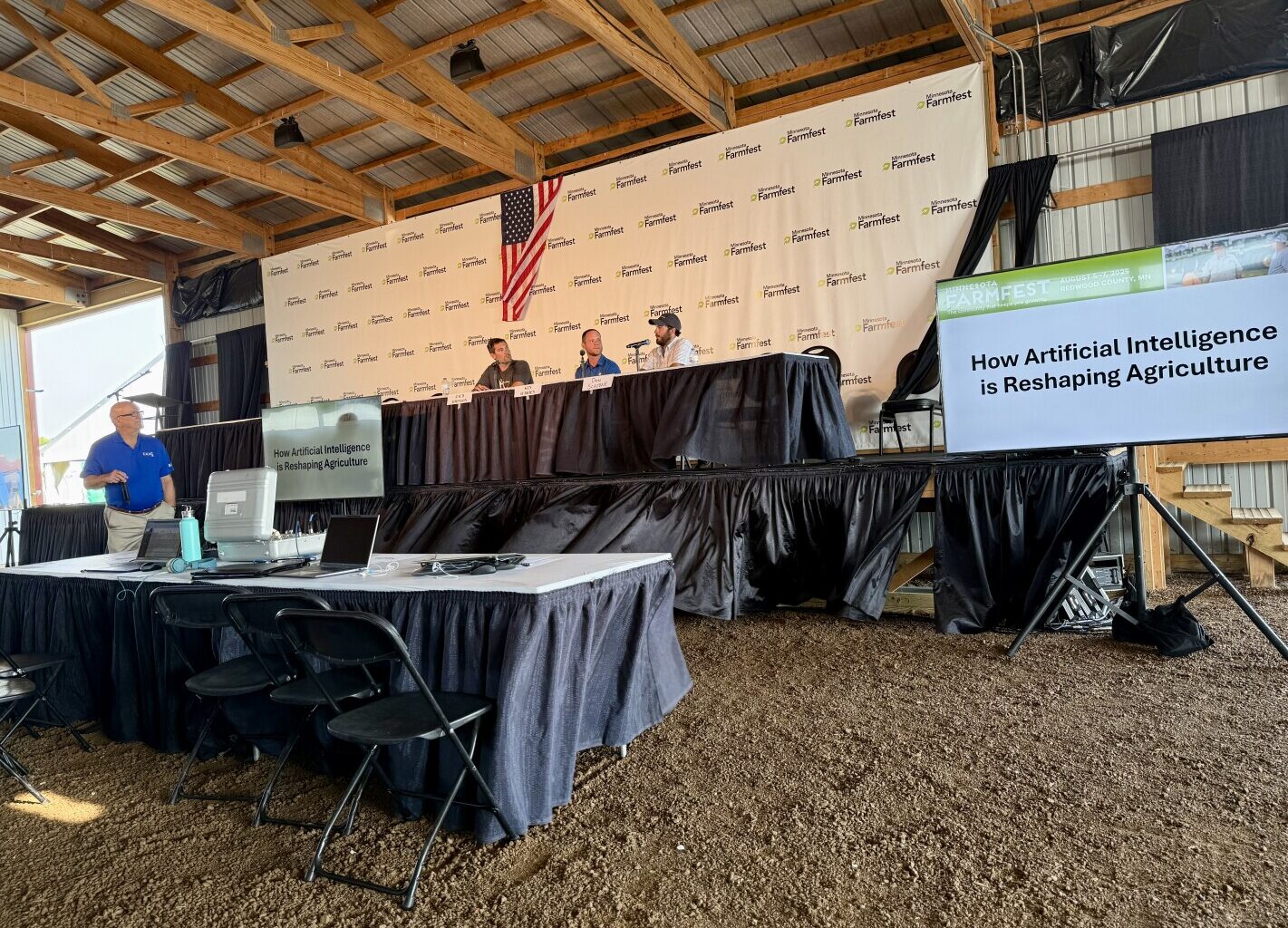MORGAN, Minn. — Artificial Intelligence has been taking the world by storm in many industries, including the ag industry. But, the blossoming new technology has been hit with skepticism when it comes to farmers incorporating it into their operations.
Zach Johnson, also known as the Millennial Farmer,
was the moderator for the panel focusing on artificial intelligence. He said he believes that his children growing up with artificial intelligence will be much like how he grew up with Google, and later down the line, a smart phone. Joining him on the panel were Ken O’Brien, agronomy innovation leader with Corteva, and Don Scribner, director of product for TerraClear.
So far, there have been many bells and whistles when it comes to AI, but when looking past those shiny pieces of equipment and technology, Scribner believes AI is
setting up farmers for success in a more realistic way.
“You see autonomous tractors. You see spot spraying happening. Combines are changing their settings as we go. But if you kind of think about what it’s doing today, it’s really setting up, and it’s sensing and acting really quickly,” Scribner said. “Where it’s going to step forward is this ability to start bringing in more and more inputs … give information quickly to farmers, so you can maybe make changes before you go to the field, as you’re in the field, and maybe make a different decision than you would have in the past.”
While AI is set to make decisions easier in the future, some worry about potentially being replaced by the technology. O’Brien doesn’t anticipate that in his field of work. However, he thinks it’s important to work with the technology instead of against it.
“I don’t think technology like AI or digital solutions in general are going to replace agronomists, but I tell the agronomists at Corteva or Pioneer all the time, I do think agronomists who understand how to use these tools are going to replace those who don’t. They’re going to be more valuable to their customers. They’re going to understand how to increase performance more,” O’Brien said.
Another worry farmers are voicing is the lack of security that can come along with AI. Many worry about a data breach or someone getting a hold of their or their farm’s personal information. Panelists urged farmers to be careful with their information, even if they do not utilize AI into their current farming operation.
Emily grew up on a corn, soybean and wheat farm in southern Ohio where her family also raises goats. After graduating from The Ohio State University, she moved to Fargo, North Dakota to pursue a career in ag journalism with Agweek. She enjoys reporting on livestock and local agricultural businesses.

